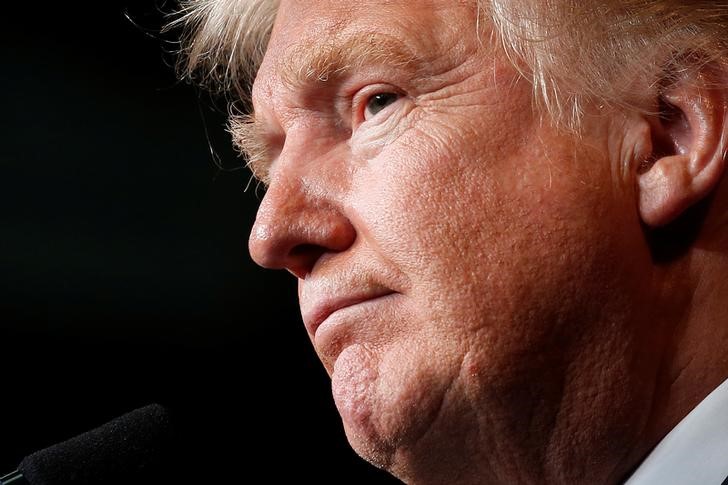(Bloomberg) -- President Donald Trump said Friday that a trade deal with China is close as he prepared to send his negotiators to Beijing for a fresh round of talks next week, but U.S. officials downplayed the prospect of a swift conclusion.
Trump has said that he wants an agreement that could be enforced, not a quick deal. U.S. Trade Representative Robert Lighthizer, who is leading the talks for Trump, and Treasury Secretary Steven Mnuchin will travel to Beijing for meetings at the end of next week, and Chinese Vice Premier Liu He will then come to Washington in April to continue the discussions, the Chinese Ministry of Commerce said on Thursday.
“I think we’re getting very close,” Trump said in an interview broadcast on Fox Business Network’s “Mornings With Maria” on Friday. “That doesn’t mean we get there, but I think we’re getting very close.”
He insisted that the talks hadn’t been slowed after saying earlier this week that he would keep some tariffs on Chinese products even after a deal in order to ensure Beijing’s compliance. Chinese negotiators have pressed for tariffs to be lifted immediately.
The two sides have continued negotiations on a 150-page agreement through telephone calls and video conferencing, including one held late Wednesday, said the people, who asked for anonymity because they were not authorized to speak to the press. They added that while there had been progress, negotiators wanted to meet face to face.
The goal is to reach an agreement in the days after Liu’s visit to Washington, potentially with a meeting between Trump and his Chinese counterpart, Xi Jinping, at Mar-a-Lago, they said. A date for that has not been set, but officials say that meeting could pushed as far as into the end of April.
Some American negotiators have become concerned that the Chinese are pushing back against U.S. demands, according to people familiar with the negotiations.
Trump on Wednesday said he would keep tariffs on China until he’s certain that the Chinese are complying with any new trade agreement, rejecting expectations that the two nations would agree to roll back duties as part of a lasting truce to their trade conflict.
“We’re not talking about removing them, we’re talking about leaving them for a substantial period of time, because we have to make sure that if we do the deal with China that China lives by the deal,” Trump told reporters at the White House on Wednesday before leaving on a trip to Ohio. “They’ve had a lot of problems living by certain deals.”
The president’s comments dimmed hopes that round-the-clock trade negotiations between the world’s two biggest economies could lead to them removing the roughly $360 billion in tariffs they’ve imposed on each other’s imports. Beijing has pushed the Trump administration to remove tariffs as part of any deal.
